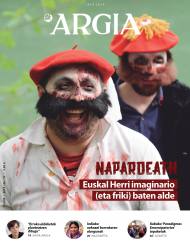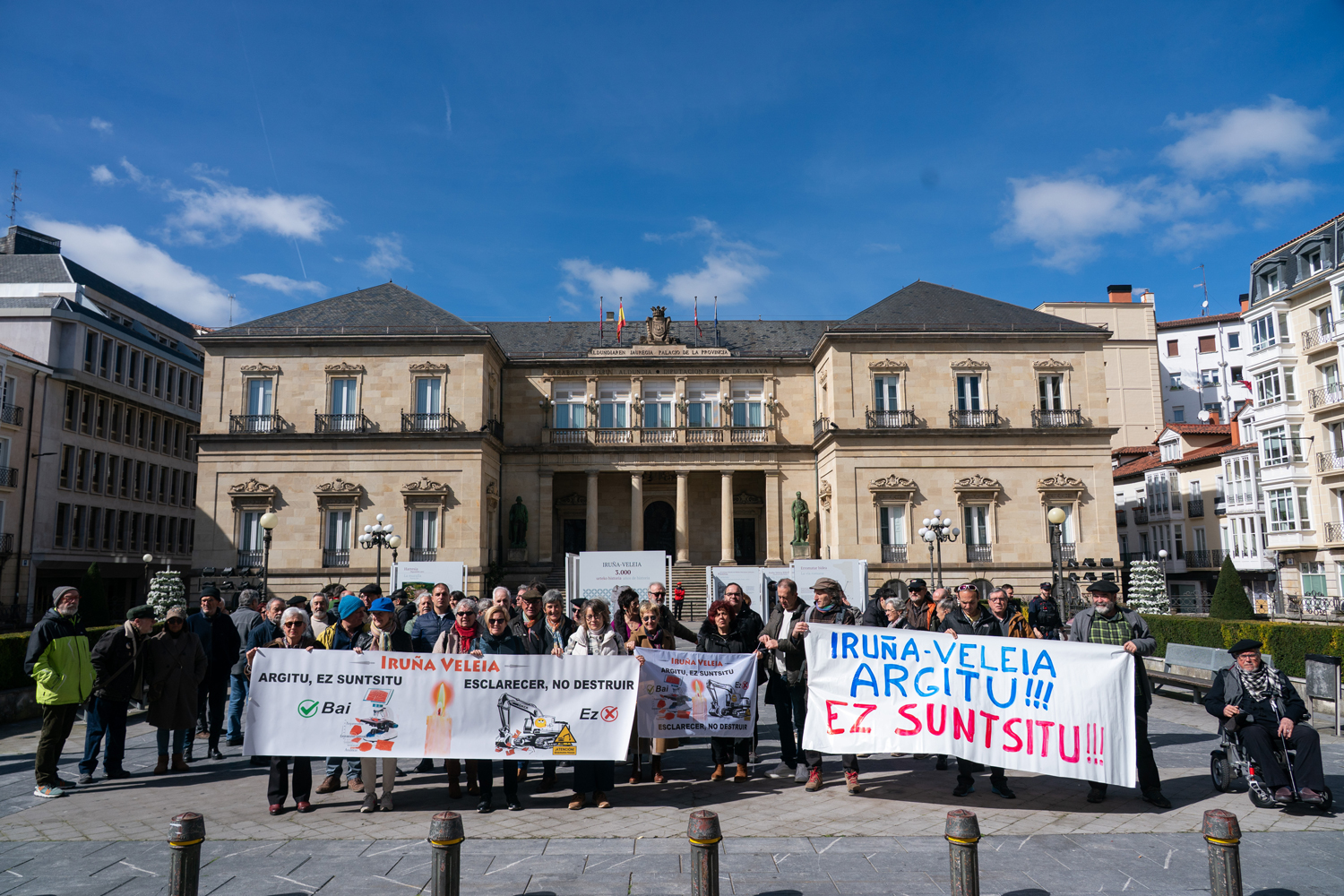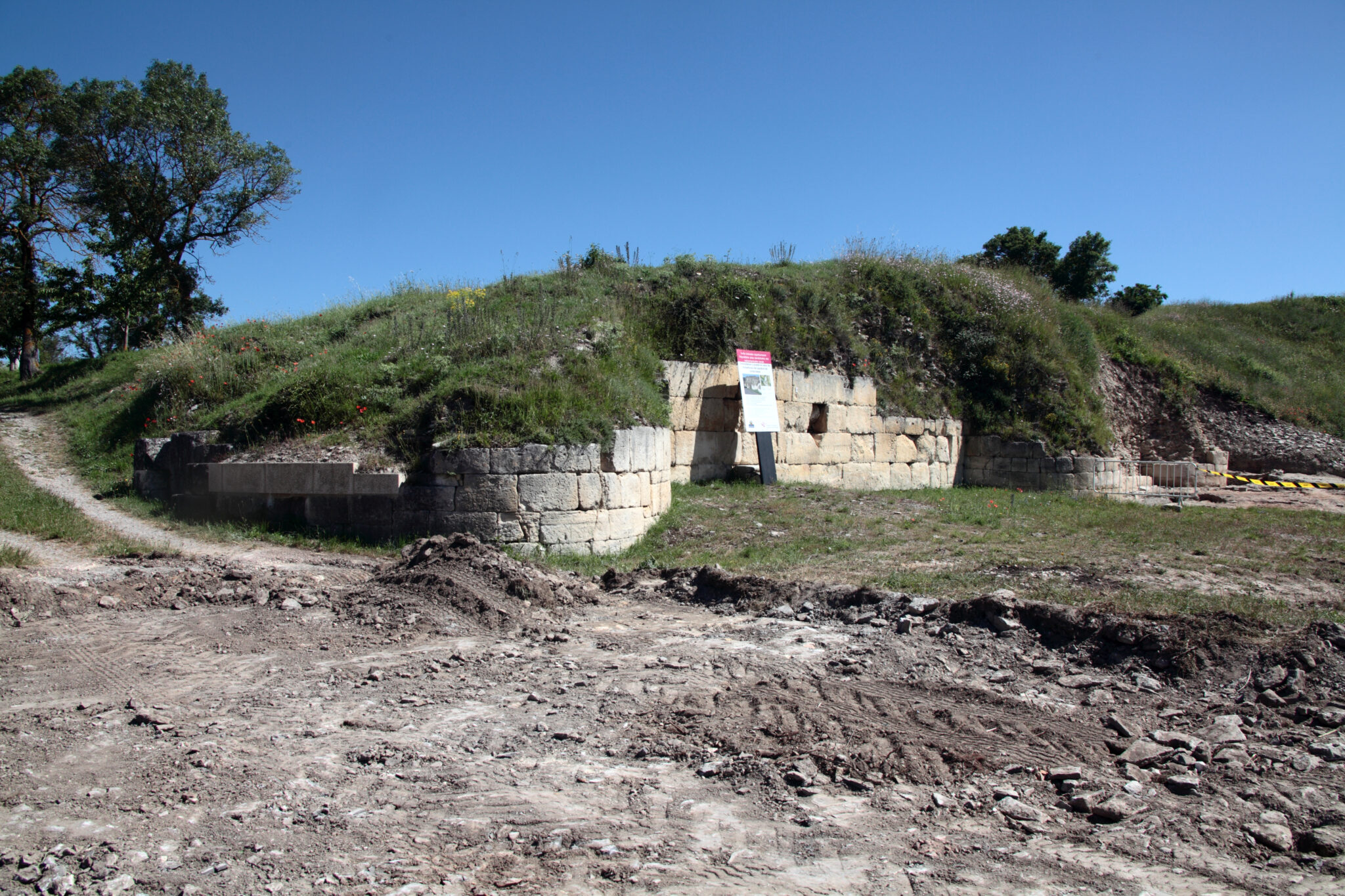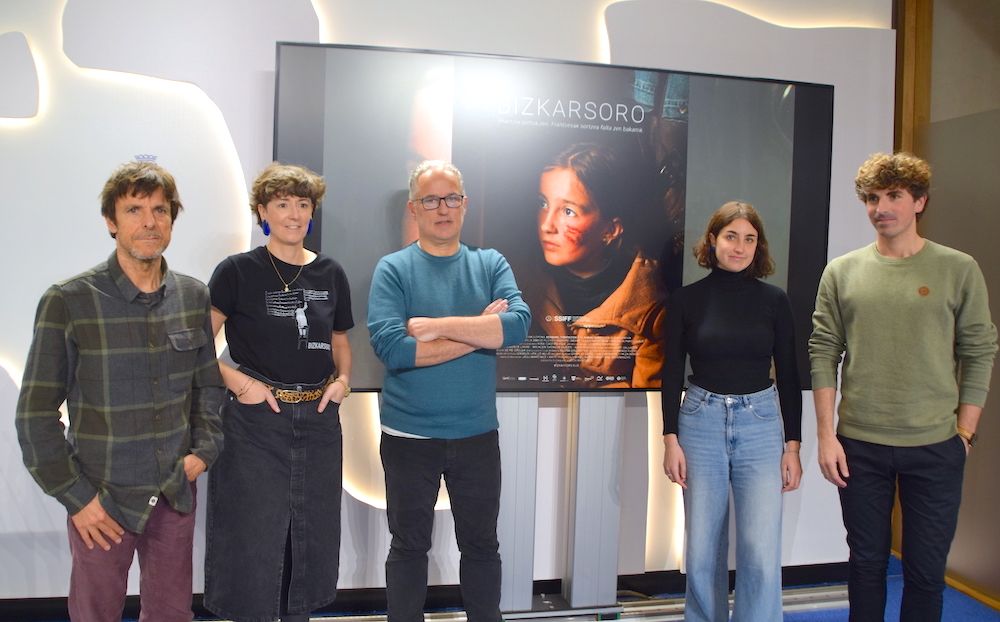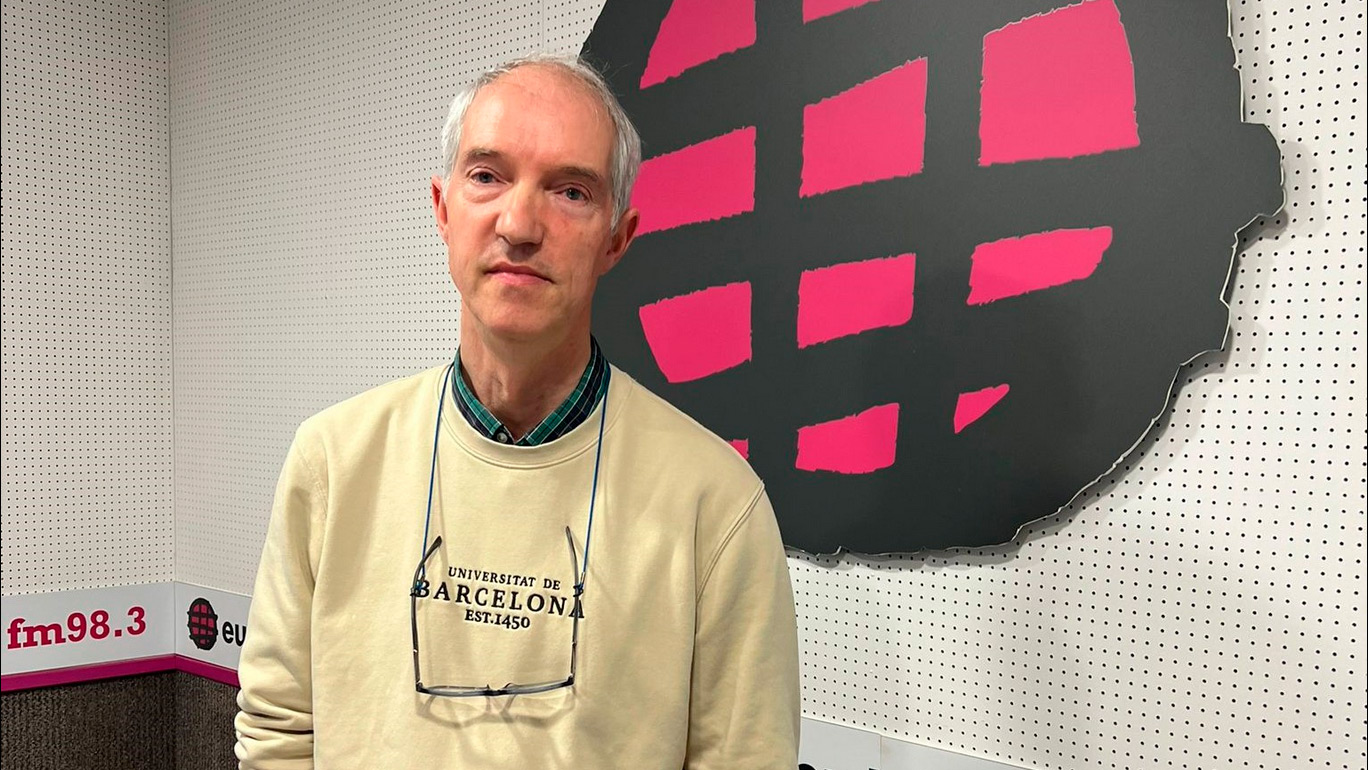"I don't know if we're popcorn ..."
- A document of 1822, preserved in the archive of the City of Bera, highlights the reality hidden by the mandatory official documents: in the local institutions it was impossible to speak in Basque in order to “understand us better”. Line by line, the social and linguistic problems of the citizens who had just suffered the war can be uncovered in a beautiful Basque country.
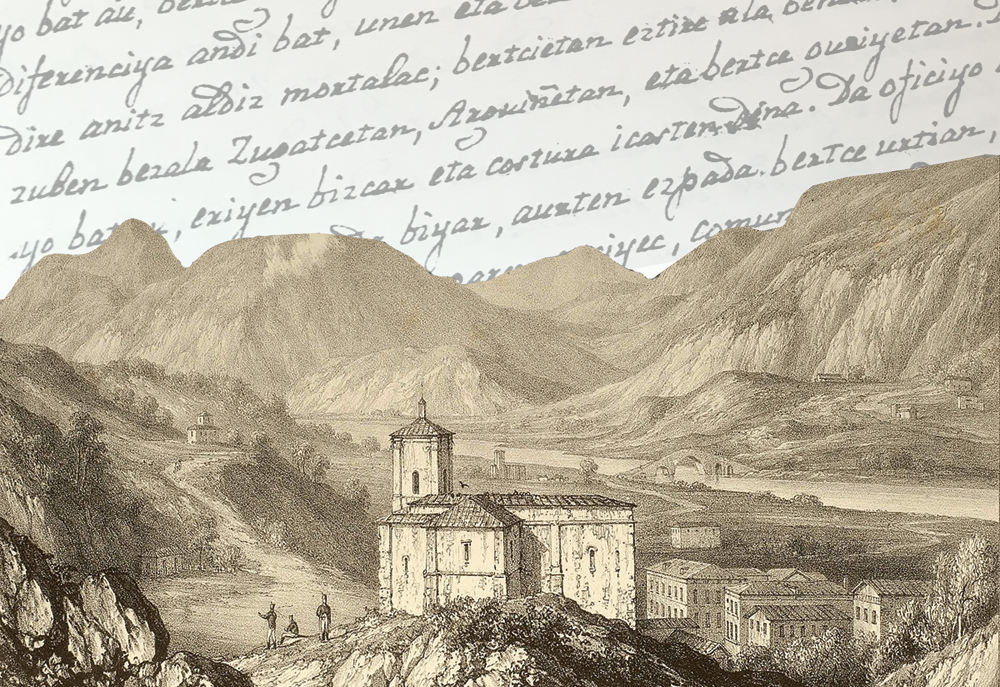
The summer of 1981 brought us a little surprise. Within the annual program that the City Council publishes to announce the Sanestebanes of Bera, in the supplement that is also called Berako Oihua, along with written texts about hunta and that by the language-loving neighbours, an old writing in Basque arrived, without any note, neither who introduced it, nor where it was taken, nor why it entered it: “Uscaldunac gara ezquero, in the architectural rooms we are guciyec, uscaraz esplicatcia has seemed to us, full of respect, today treat duayen asuntuba, elcar obequi adituric, acertatceco. Aiñ andiya e importantia is, in our view, the assumption that we have in the art of the escu, where the acertatciac or utsegutiac ecarri biartio Veraco, probechu larriyac or calte lastimagarriyac”.
It was an old text, yes, from 1822, when it arrived, but so old and with the photograph of the original it could be read easily. In a beautiful Basque and, in addition, it was not a religious text, as the six signatories proposed the criteria to be taken into account for the choice of local barbera (the doctor): “This is Barberah. It is a question of health or criminal eriyotcia da officiyo aduba artaz…”.
Twenty years later came the paper Historical Texts of the Civil Administration of Imanol Treviño, an extensive collection of texts written in Basque throughout history, the search for the researcher and the result of a rich compilation. In the municipal archive of Bera there were also some of them, but not the one mentioned here.
It is not known exactly in which year the librarian of the UPV/EHU was exploring the collection of documents of the Municipality of Bera. Surely, this that we have now brought up would not be with others, because he would have made him look. Where was he or she? It is currently in the Bera file, as we have seen later.
Interestingly, at this point in time of the Sanesteban we have not noticed the echo of this manuscript that almost forty years ago entered all the houses of the town. In the Repository of Classics of the web Armiarma does not appear, and in the others we have not seen any trace of it either. And we've decided to publish it.

Aimed at all citizens, both owners and tenants
Six men sign the text. Three of them were servants of the church, the parish priest of the people, Juan Estevan Irazoqui, and two priests of the people, Martin Josef Hualde and Juan Esteban Garmendia – in terms of writing, this is the author – one of the three remaining, military, who had a fairly high degree, Gregorio Echegaray, and the other two, Garevan Echenxipia.
The six gathered their names and addressed a joint statement to all the people. “Alcate, Regidor, Neighbor and Veracuac.” That is, the mayor, the councillors and the rest of the citizenship: the owners of the house (neighbors) and those who do not have their own house, the tenants (inhabitants).
Despite being a civil text, in the rhetorical style, the writing smells of preaching, as if you were going to read it from the pulpit, but reading what you put in the front lines it is clear that it was for another discussion forum: this room should be the room of the Consistorial House. It was precisely there that they met to hold the meeting of the General Assembly, as has been noted in another archive document.
Barber good, single or not
The signatories thought they had to do something earlier, given that the town of Bera had a serious problem: the local doctor, Juan Manuel Moleda Lostra de Zugarramurdi, died unexpectedly young. What filled his vacuum had to be quickly chosen. The doctor's death occurred on December 26, 1821 and the writing is January 12.
The doctor, who was already a widower, seemed to have at least one young daughter in charge. Apparently, in the village some thought that this circumstance should be taken into account in choosing the new barber and that the single doctor should be brought in to be also a neighbour of the orphan – travelling for life –.
Then he will tell you that some of the people of today, supposedly wise, have left us here for centuries rot the Basque in a corner, that the Basque has been used less and less by our will, by our own will, “because the people do not appreciate so much the Basque”, as Gandiaga said.
The signatories to the text acknowledge that they also join the will to help the poor daughter, but consider it very dangerous to confuse this desire to help with the procedure of choosing the doctor. In his view, other reasons should be taken into account. In a way, it had to be ensured that it was the one that dealt with the health of the citizens, and above all a good doctor: “…a barber yaquintsu, practice and experiment, and in the albacione hospitals multiple icusi and icasi tubena”.
“Miserable necazale triggered mediyoric”
In addition, the signatories inform us about the situation of the municipal coffers: “It’s Eguiya: the bank is poor architecture: demborac, with our misery, tristiac dire. Envidiya andi to some districts like guc Erribera aldeco Vera, if in the wedges the rent is good, eztire gutiyago Barber onac and famatubac: how they are in Caresa, Tafalla, Peralta, and guisa unetaco bertce anitca. That compares guitezque erriya equin ounces.”
The economic turmoil that the Afrancesado (1808-1814), who still suffered, caused in the region, has been cited on more than one occasion by historians of the exterior and the people.
Thus, they appear in the defense of the poor. A good doctor must be chosen, available to all citizens. The rich don't care so much, if they can, but those who don't have: “The good of Cé in the ichi, if in Biartce there is a good Barber, the Ecarrico du campotic at least, a miserable nector will be mediyoric.”
In Basque, to understand us better
Leaving aside the nuances provided by the text, the signatories make a harsh statement on the very principle of the text, beautiful and cruel.
In particular, in the introduction of the text they justify why they have decided to give explanations in Basque: “Uscaldunac gara ezquero…”. That is, they decided to speak in Euskera, in order to understand themselves better, as the Basque gave them the assurance of not having misunderstandings between them. They felt obliged to explain to them in Basque, but “full of respect”, because they knew that it was not the norm – that it was different – and because they did not want anyone to throw their glove at them.
Then he will tell you that some of the people of today, supposedly wise, have left us here for centuries rot the Basque in a corner, that the Basque has been used less and less by our will, by our own will, “because the people do not appreciate so much the Basque”, as Gandiaga said.
Izkribuak ez dakar sendagile lanpostua betetzeko hautagaien hizkuntz eskakizunen gaineko aipamenik, baina udal artxiboan bildurik dauden agirietan –horiek denak gaztelaniaz– ikusi dugu oposizioa egin zela Iruñean, bi hautagairen artean bat hartzeko, eta Pedro José Goizueta Alcasena hautatu zutela, sortzez lesakarra eta Igantziko sendagilea zena (eta ezkondua!); bertze hautagaia Manuel López zen, ez dakigu nongoa.

Epaileen iritziz, bietako edozeinek ongi beteko zuen sendagile lana, baina Berako Udalaren borondatea kontuan hartuz (“…con arreglo á los deseos de Ayuntamiento para el mayor acierto en la eleccion, y mas escrupuloso informe…”), lesakarra hobetsi zuten. Ez dute zehatzago argitzen hautespen horren arrazoia, baina litekeena da, hain zuzen ere, haren euskalduntasuna kontuan hartu izana, zeren geroagoko bertze agiri batean, Berako Udalak 1831n bertze mediku bat hautatu behar izan zuen garaian, espresuki aipatzen baita hautagaiek euskaldunak izan behar dutela: “…los pretendientes deven poseher el idioma bascongado…”.
Herritarrei zuzendurik eta herritar guziek ulertzeko asmoz eginiko euskarazko testua izanik, izkribuan bertako hizkera erabiltzen saiatu izanen ziren, nahitaez. Sinatzaileek izanen zuten horretarako gaitasunik aski, seiak Beran jaioak baitziren, elizako datuen artxiboan ikusi dugunez.
Hori kontuan hartuz, interesgarria litzateke hizkuntzaren aldetik aztertzea eta alderatzea lehendik bilduak diren garai bertsuko idazki zibilekin nahiz erlijiosoekin –Berakoak zein ingurukoak, mugaren bi aldeetakoak–, bai baitira halako bat baino gehiago.
Horretarako, izkribua osorik laster argitaratuko da aldizkari espezializatuan, eta Ekaitz Santazilia hizkuntzalari adituaren iruzkina ere agertuko da bertan, halako eginkizuna ez baitago gure esku, zeren hori bailitzateke, izkribu zaharraren egileei ikasi diegun erranera ederra baliatuz, “…sagar omuac escatcia bezala elorriyari…”.
Otsailean bost urte bete dira Iruña-Veleiako epaiketatik, baina oraindik hainbat pasarte ezezagunak dira.
11 urteko gurutze-bidea. Arabako Foru Aldundiak (AFA) kereila jarri zuenetik epaiketa burutzera 11 urte luze pasa ziren. Luzatzen den justizia ez dela justizia, dio... [+]
Martxoaren 30erako Iruña-Veleia martxan, SOS Iruña-Veleia eta Euskeraren jatorria elkarteek manifestaziora deitu dute, Aski da! Argitu, ez suntsitu lelopean. Azken bi urteetan "hondeatzaileak sistematikoki eremu arkeologiko oso aberatsak suntsitzeko modu... [+]
Urriaren 26an Iruña-Veleia Argitu, ez suntsitu jardunaldian Zenbat esku daude Iruña-Veleian aurkitutako ostraken testuetan? ponentzia aurkeztu zuen Joseba Lizeagak
“It’s been 18 years since some 400 graffiti appeared on the excavation, 16 years since he was expelled from the excavation camp of Lurmen without scientific evidence and 4 years since the trial was held without clarifying the subject, we can say that we continue to... [+]
Today, all the hierarchies that have been built in our world are the result of a process of global colonization. These global hierarchies of domination are formed by other more specific intertwined hierarchies, that is, classical, ethnic, aesthetic and even linguistic. What we... [+]
In June 18 years ago we started to get to know the paintings of Iruña Veleia. Good news for the Basques.
But the current situation is not so satisfactory. On the one hand, the Provincial Council of Álava (DFA) says that all graphites are false, and that those who think... [+]









